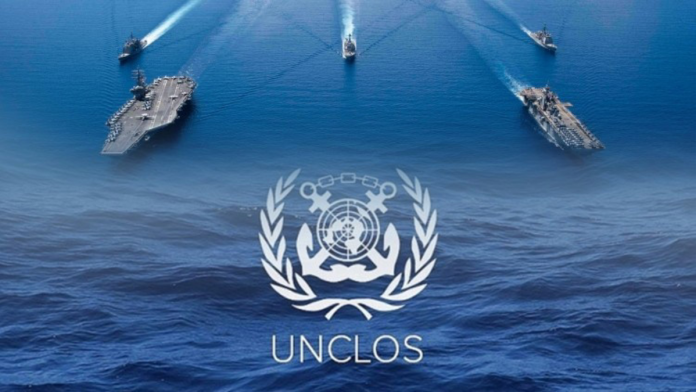Recently, the Quad, a group formed by the United States, India, Japan, and Australia, held a summit to address some pressing global issues like violation of UNCLOS. One of the key topics was the situation in the East and South China Seas, though they didn’t directly mention China. The Quad expressed serious concern over what they see as troubling developments in these waters, especially when it comes to disputes over territory and resources.
The Quad’s Stand on UNCLOS and Maritime Disputes
During the meeting, the Quad leaders supported a decision made back in 2016 by an international tribunal about the South China Sea. This decision, known as the Arbitral Award, ruled in favor of the Philippines in a case against China’s claims over the area. The Quad called this ruling a “significant milestone” in resolving conflicts peacefully.
What’s important about this summit is that it marks the first time the Quad members jointly supported this ruling in such a clear manner. In a joint statement called “The Wilmington Declaration,” they emphasized settling any disputes in the seas peacefully and in accordance with international law, specifically the United Nations Convention on the Law of the Sea (UNCLOS).
The Quad also made it clear that they oppose any actions that disrupt countries from using the resources in their own waters, further signaling their concerns without directly naming China. They re-emphasized the importance of keeping sea routes open for trade and free navigation and stressed the need to respect international law.
Growing Tensions in the South China Sea
This focus on maritime disputes comes at a time when tensions between China and its neighboring countries, particularly the Philippines, are rising. The Philippines has repeatedly raised concerns about China’s activities in the South China Sea. Over the past two years, this tension has only increased, especially as both countries stake claims to different parts of these waters.
In 2016, an international tribunal set up under UNCLOS ruled that China’s claims over much of the South China Sea, including its famous “nine-dash line,” were not valid. The tribunal’s ruling favored the Philippines, stating that China had no legal right to claim these territories. Despite this ruling, China has not accepted the verdict, calling it “null and void”.
Apart from the Philippines, China has similar territorial disputes in the South China and East China Seas with other countries like Vietnam, Malaysia, and Brunei. These disagreements have caused growing concerns about stability in the region, especially since these waters are crucial for global shipping and rich in natural resources.
Squad Shield: US Prefers Philippines over India Amid Rising South China Sea Tensions
The Philippines, being a treaty ally of the United States, is reportedly planning to bring this issue back to international platforms, including the United Nations, to gain more support against China’s claims.
The Quad’s Commitment to Regional Stability
At the Quad Summit, the leaders of the four nations reaffirmed their commitment to upholding international law, ensuring peace, and maintaining security in the Indo-Pacific region. Their statement underscored the importance of respecting national sovereignty and resolving disputes without resorting to force.
They pointed out that all countries should follow international laws, including the UNCLOS, which help nations resolve disagreements and ensure free and unimpeded use of the sea for navigation and trade.
India to Conduct Malabar Exercise with QUAD to Confront China’s Aggression
The Quad leaders met in person for the fourth time at this year’s summit in Wilmington, Delaware, hosted by the US President. The gathering reflects the group’s shared commitment to maintaining peace and stability in a region increasingly viewed as a global flashpoint.
The Quad’s emphasis on the UNCLOS is a reminder that they are standing together in support of a rules-based order. They stressed that maritime disputes should always be settled through peaceful means, using established international laws.
In short, the Quad summit was an important moment for the group to express its commitment to UNCLOS and concerns about developments in the South and East China Seas. While China wasn’t directly mentioned, it is clear that their actions in the region are being watched closely.


